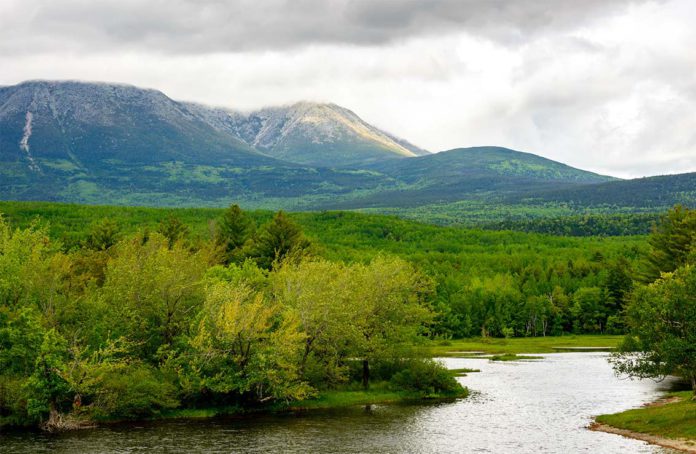PENOBSCOT COUNTY, ME – The Penobscot Nation and Trust for Public Land (TPL) announced a comprehensive plan for 31,367 acres in the Katahdin region of Maine that TPL acquired late last year. The effort, when completed, will return nearly 30,000 acres of land taken from the Penobscot Nation in the 19th century. It will represent the largest land return between a U.S.-based non-profit and a tribal nation and will center Indigenous self-determination around land care.
At the same time, TPL hopes to create vitally needed southern access to Katahdin Woods and Waters National Monument on the roads through the land.
“We are very excited to work with TPL towards this common goal of returning a portion of unceded lands back to the governance of the Penobscot Nation,” said Penobscot Nation Chief Kirk Francis. “The Nation highly regards the East Branch of the Penobscot River and her tributaries. We are also ecstatic for the opportunity to explore and improve the aquatic and wildlife habitat within this parcel to conserve more land in the Katahdin region for our future generations.”
The historic move to convey significant acreage to the Penobscot Nation aligns with TPL’s commitment to support tribal nations and Indigenous communities in their efforts to recover, restore, and protect their ancestral homelands.
“Trust for Public Land recognizes the profound and vital significance of returning land,” said Diane Regas, Trust for Public Land President and CEO. “It’s not just an isolated act, but a deep acknowledgment and reaffirmation of a timeless bond, a rich history, and a promising future. As we collaborate with the Penobscot Nation, the National Park Service, and local communities, we are driven by a shared vision: to honor and help restore the rich tapestry of Wabanaki connection to land and ensure that Katahdin Woods and Waters National Monument can be accessed and enjoyed by all.”
Today, members of the Wabanaki Nations – including Penobscot, Passamaquoddy, Maliseet, Mi’kmaq, and Abenaki communities – legally steward only one percent of their ancestral lands in Maine. The return of this land to the Penobscot Nation is part of a broader effort to recenter Wabanaki people and communities in land relationship and ownership. The inter-tribal Wabanaki Commission on Land and Stewardship, Psiw ut skitkamiq kignumin (the whole earth is our home) – whose mission is to improve the health and well-being of Wabanaki people through a sustained effort to expand access, management, and ownership of lands to practice land-based cultures across Wabanaki homeland – helps guide this work.
The land contains abundant forests, wetlands, 53 miles of streams, and is situated near the base of Katahdin and within the Penobscot River watershed, which is considered sacred and vital to Penobscot community and culture. It hosts productive forestland and recreational trails – both of which support local communities and economies – and the rivers, streams, wetlands, ponds, and forests on the property support diverse fish and wildlife. Because of its size, elevation, and biological diversity, the conservation and long-term stewardship of the property are pivotal to helping the region mitigate the impacts of climate change.















































